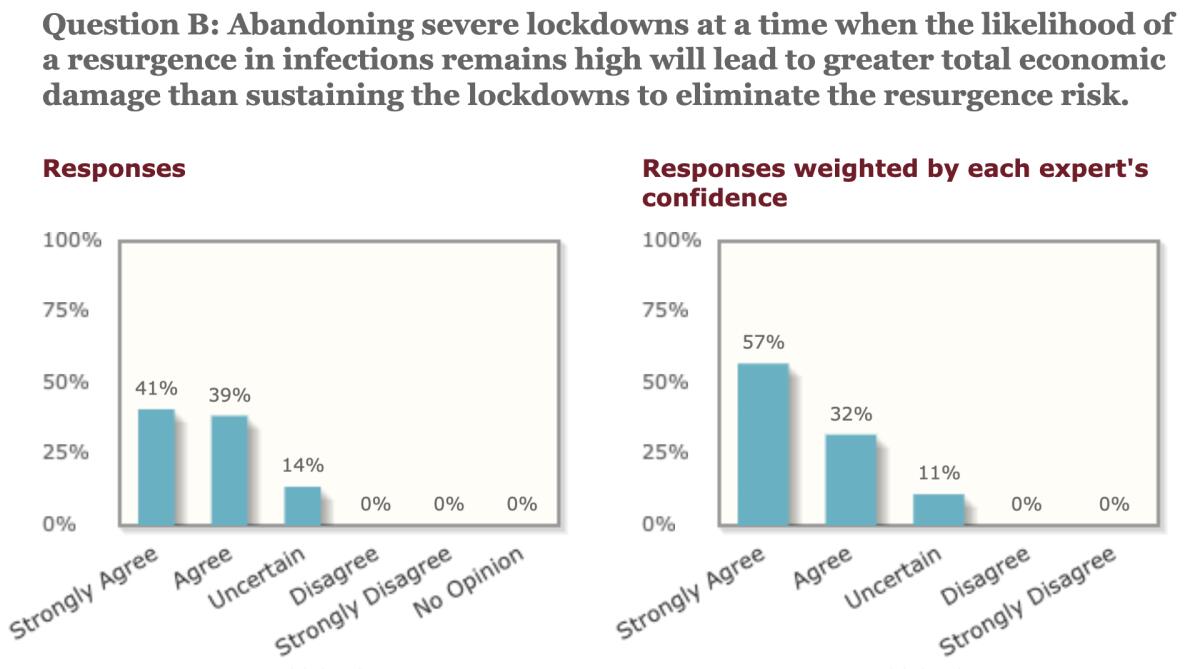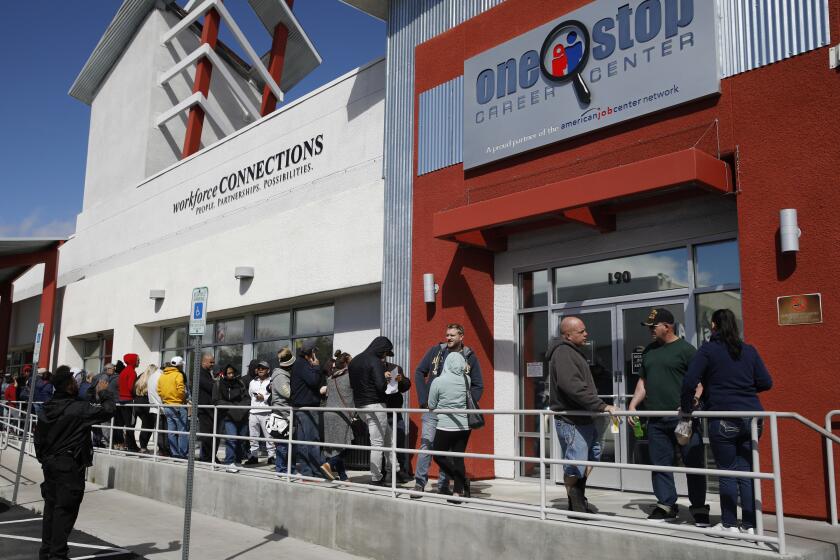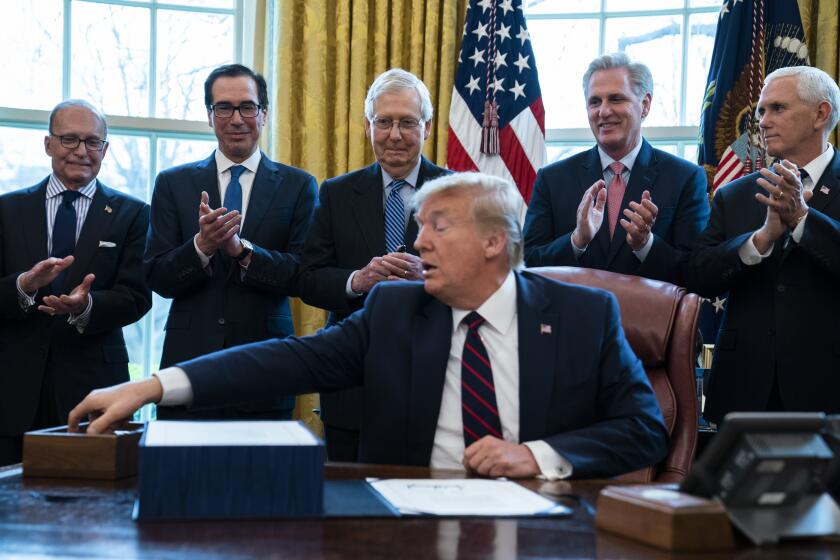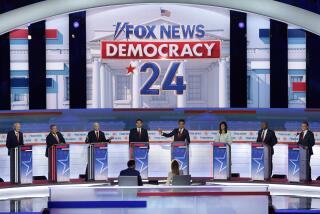Column: Economists agree with doctors that prematurely lifting lockdown would be disastrous

Until now, the voices warning against prematurely lifting stringent social regulations to combat the novel coronavirus have been those of doctors and epidemiologists.
But a blue-ribbon group of economists has just weighed in, and they agree -- virtually unanimously.
The panel of 44 economists assembled by the Booth School of Business of the University of Chicago was asked to opine on coronavirus policy in three respects.
Crazy to give up fight now when worst still ahead.
— MIT economist Bengt Holmström, on whether the coronavirus restrictions should be lifted soon
These were whether we should expect “a very large contraction in economic activity” as a result of antivirus policies, whether the economic impact would be even worse if stringent rules were abandoned while “the likelihood of a resurgence in infections remains high,” and whether the federal government should invest more than it has thus far in building temporary hospitals, accelerating testing and paying for more masks and ventilators.
The economists agreed or strongly agreed with all three suggestions. Although a handful didn’t answer all the questions or said they were “uncertain,” not a single one disagreed.
The Booth school regularly polls its economist panel on questions of public policy. Over the past year, the topics have included healthcare reform, Trump’s trade war with China, Brexit, bitcoin, wealth taxes and the college admissions scandal.
It’s time to think about how to get workers raises over the long term.
Participants are asked to vote on a spectrum ranging from “strongly agree” to “strongly disagree” and can offer written comments if they wish.
The panel membership changes slightly from time to time but in generally represents an ideological and partisan cross-section of the profession.
The group’s opinion on coronavirus policy is useful because thus far, the proposals for strict social distancing and lockdowns making their way to the Trump White House have come from the medical and scientific community.

Trump, however, has been focused on the economic consequences, which include a recession or even a depression, as well as the stock market’s severe slump.
Over the weekend, Trump acknowledged the need to maintain the restrictions until the end of April. Prior to that, his position was that the economic crisis fomented by the restrictions might be worse than the coronavirus emergency itself.
On the question of whether lifting the restrictions too early would lead to “greater total economic damage” than leaving them in place longer, 35 economists agreed or strongly agreed, six said they were uncertain, and three didn’t answer. None disagreed.
Trump says he won’t cooperate with bailout oversight, so what is he hiding?
“The epidemiology studies imply severe economic damage in the form of additional loss of human life (to which I assign high economic damage),” observed Darrell Duffie of Stanford in a separate comment.
David Autor of MIT, who said he was “uncertain,” wrote: “We could overdo this lockdown! (But we could under-do it as well.)”
Wrote Bengt Holmström of MIT: “Crazy to give up fight now when worst still ahead.”
On whether a large contraction in economic activity is in store for the U.S., two were uncertain and two didn’t answer. All the others agreed or strongly agreed.
And on whether more investment in healthcare infrastructure and equipment is needed to fight the pandemic, three didn’t answer, but all the others agreed or strongly agreed.
“Given the potential length and depth of [the] downturn, it is hard to imagine overinvesting in pandemic-related investment,” commented Willliam Nordhaus of Yale, a Nobel economics laureate for his work on the economic costs of climate change.









